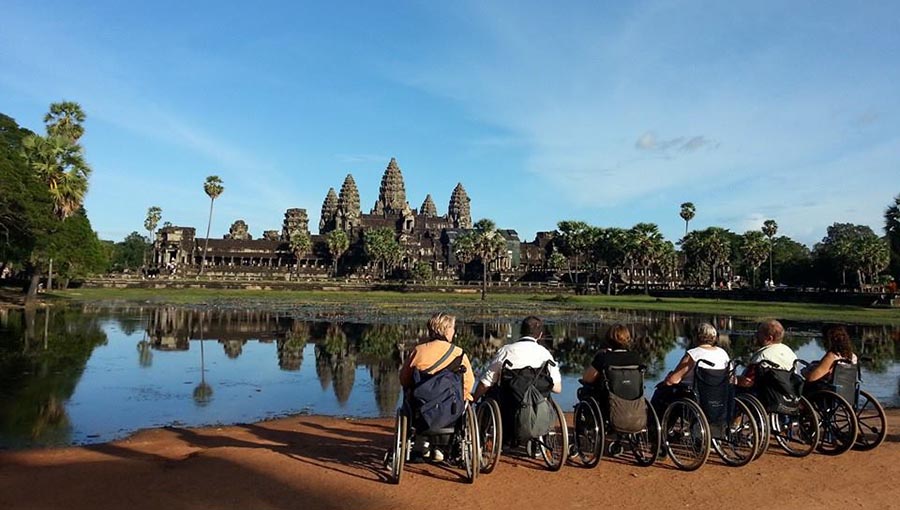Top seven tips for cashing in on the disability traveller

There’s no reason all Australians shouldn’t be able to live the dream and travel – whether it be on safari in Africa, or interstate to see a sporting event. While it can sometimes be more logistically challenging for people with disability, there are simple ways the travel industry can help.
Bill Forrest works for inclusive travel specialists TravAbility. He and his team spend much of their time making an economic case to the travel industry for better accommodating the needs of people with disability.
There are 4.5 million Australians with disability says Bill. That’s a huge customer based worth tapping into.
“The travel industry needs to get better at seeing people with disability as customers, like everyone else. It’s just good business at the end of the day,” he says.
Here’s the top seven ways tourism businesses can change their thinking to make the most of the market and provide great holiday opportunities for people with disability.
Think beautiful, not clinical – accessibility doesn’t have to be ugly.
Try powder coated or chrome grab rails instead of stainless steel. Look at the funky taps supplied by many bathroom suppliers and choose one that’s beautiful and functionally appropriate. Think creatively about colour schemes so they’re inviting AND meet requirements such as luminosity contrast.
Think experience, not destination
People don’t go on holiday to sit in a hotel room, no matter how accessible or well equipped. Provide information about local attractions and their accessibility features and see what you can do to help make the experiences as good as they can be.
Think marketing not cost
If you’re doing something in this space, tell people! Many suppliers have a lot of features that help people with disability but they’re not telling anyone about them,” Bill says. “They should be seen as a marketing tool, not a cost impost.”
Think mainstream not niche
People with disability make up 11% of the tourism market. Travel suppliers need to start thinking of people with disability as customers and put the information they need on their website,” Bill says. For example Destination NSW has created a fantastic new portal, sydneyforall.com– and neither of their main visitor websites Sydney.com or visitnsw.com link to it!
Make some small changes that will have a big impact.
Supply bigger remote controls, use digital in place of analogue clocks, try larger print for your menus and put a walking stick holder in your reception area. They might seem like small things but they will make the visitor experience so much better.
Have a clipboard available at reception desks and a chair
So people can sit down and fill in their check-in details or do them from their wheelchair.
And most importantly
Have a go! If it doesn’t work, learn from it and try again
“Travel is good for the soul and it’s critical for people’s mental health,” Bill says.
“It doesn’t have to be an African safari, which is entirely possible by the way, it can be a weekend away in the mountains or easy travel into the city.
“Everyone has a right to travel where it is possible, and they have a right to do it with their friends and family.”

Join the conversation